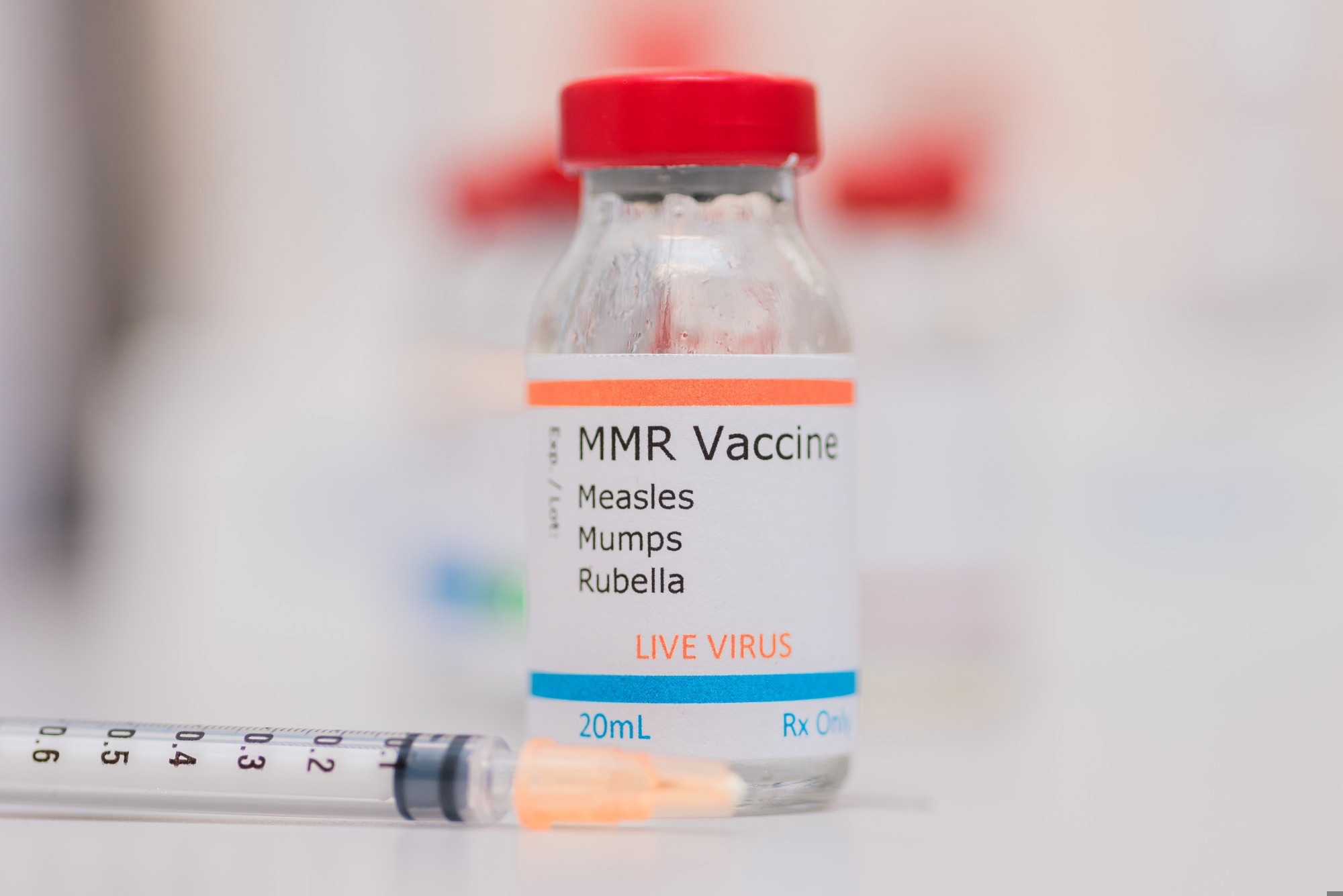As measles outbreaks climb to their highest in decades, new survey data reveal both strong support for MMR vaccination and growing confusion over vaccine risks and disease complications.
 Image Credit: Rohane Hamilton / Shutterstock
Image Credit: Rohane Hamilton / Shutterstock
A new survey highlighted varying opinions regarding MMR (measles, mumps, and rubella) vaccination among US citizens. These opinions stem from a lack of accurate information regarding the risks of these diseases and the fact that the benefits of vaccination outweigh the risks.
The Annenberg Public Policy Center (APPC) of the University of Pennsylvania conducted the Annenberg Science and Public Health (ASAPH) survey from April 15-28, 2025, to understand the current status concerning the awareness of the measles outbreak and MMR vaccination benefits among general US adults.
Measles cases in the US and a preventive strategy
As of the 8th May 2025, the U.S. Centers for Disease Control and Prevention (CDC) had confirmed over a thousand measles cases in the US and three deaths from this highly contagious viral infection. Since many cases go unreported, these estimates could be considered an undercount.
A sudden surge in measles cases in the US, i.e., the second-highest number of cases since 2000, is considered alarming because of the announcement of its elimination from this country. Therefore, this current surge in measles cases could be due to a viral strain originating outside the country.
According to the CDC, two doses of the measles vaccine can effectively prevent 97% of measles infections among those vaccinated and exposed to it. Children receive the two doses of MMR vaccine at different times; the first dose is administered to recipients between 12 and 15 months of age, and the second dose between 4 and 6 years of age.
About the survey
The current ASAPH survey analyzed the latest data from April 15 to April 28, 2025, concerning previous findings. This survey is based on interviews conducted via web and telephone among a nationally representative probability sample drawn from SSRS, an independent research company.
The ASAPH survey included 1,653 empaneled US adults. It revealed a wide gap in information regarding measles in some survey respondents, specifically the importance of MMR vaccination in children, transmission routes, and other relevant data.
Survey findings
Approximately 83% of Americans said they were not worried (45% not at all, 38% not too worried) about contracting measles in the next three months. Kathleen Hall Jamieson, director of the Annenberg Public Policy Center and of the survey, stated that “measles cases reported in 31 states and vaccination rates dropping, everyone should be knowledgeable about the symptoms, treatment, and the prevention of measles through the highly effective MMR (measles, mumps, and rubella) vaccine.”
In the current survey, around 83% of US adults believed that the benefits of the MMR vaccine for children outweigh the risks. However, this number has marginally dropped from 89% in August 2023. Furthermore, 81% said it is true that medical professionals recommend that those who can be safely vaccinated take the MMR vaccine even if their chances of exposure are low. The following are the major survey highlights.
Measles symptoms and transmission
Approximately 50% of Americans expressed uncertainty about how complications of measles occur. According to the CDC, 13% of the people infected with measles in 2025 required hospital care (a rate accurately estimated by only 13% of respondents), and 1 in 10 people developed diarrhea (with just 4% accurately estimating this rate).
The majority of Americans know measles can spread by touching a contaminated surface (66%) or through coughing/sneezing (63%), but very few are aware of its incubation period. Only 14% of the survey respondents knew that an infected person remains contagious for four days before developing a rash.
Mandatory school vaccinations
The majority of Americans support the school vaccination requirement for the MMR vaccine for children because of the potential risk to others who are not vaccinated. Support for mandates rose to 70% in 2025, up from 63% in 2023. However, 18% of the participants said that parents should be able to decide, even if it creates risks to others. Interestingly, there has been a significant decline among those supporting parental choice from 22%, per the 2023 survey report.
Hesitations about MMR vaccines
Although MMR is the most effective strategy to prevent measles, some parents are reluctant to have their children vaccinated because of an unfounded claim that this vaccine causes autism.
In the present survey, 67% of Americans knew that MMR vaccines do not cause autism; this number has declined significantly from 74% in 2021. The proportion who believe the vaccine causes autism rose 5 percentage points, from 9% in 2021 to 14% in 2025.
Measles during pregnancy
Approximately 57% of the survey participants stated that they were not sure of the complications regarding measles during pregnancy. Only 34% correctly identified delivering a low-birthweight baby, and 34% identified early delivery as a complication. Unvaccinated pregnant women getting measles can lead to serious complications, including delivering low-birth-weight babies and premature birth. In comparison to earlier surveys, more respondents indicated deaths as a possible complication, while a small number stated diabetes (7%) and blurred vision (11%) as possible consequences.
For unvaccinated women, the CDC recommends measles vaccination a month or more before someone becomes pregnant, but not during pregnancy. This information was known among 15% of the survey respondents.
Non-vaccine treatments for measles
During the 2025 measles outbreak, US Secretary of Health and Human Services Robert F. Kennedy Jr said in a Fox News interview that high concentrations of vitamin A and D exhibited positive results in measles treatment. Health experts grew concerned that Kennedy’s emphasis on vitamin A might be misheard as endorsing it as a preventive measure.
Experts on infectious diseases emphasize that vitamin A cannot prevent measles infection. Only 9% of respondents falsely believed vitamin A protects against measles, while 4% said cod liver oil does. Doctors treated measles infection in several children from Texas, who were not vaccinated and exhibited signs of liver damage from high vitamin A exposure.